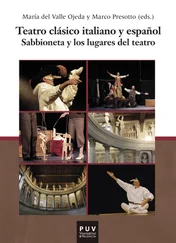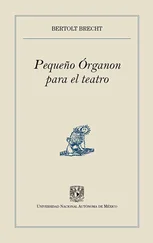‘Does that say what I think it says?’ he said to me, almost in a whisper.
‘I think so.’
‘And the light inside?’
‘Like smoldering embers,’ I said concerning the reddish glow that was shining through the wooden slats of the shed.
Having recognized the arrival of the new town manager — from whatever direction and by whatever means he may have come — we all turned away and walked silently toward town, pacing slowly through the gray countryside that day by day was being seized by the coming winter.
Despite what we had come across during our search, we soon reconciled ourselves to it, or at least we had reached a point where we no longer openly expressed our anxiety. Did it really matter if, rather than occupying a building on Main Street with a sign that read TOWN MANAGER over the door, the one who now held this position chose to occupy a shed whose rotting wooden planks had roughly the same words inscribed upon them with a sharp blade? Things had always been moving in that direction. At one time the town manager conducted business from a suite of offices in the town hall and lived in a fine house in The Hill district of town. Now this official would be working out of a weather-beaten shed next to a ruined farmhouse. Nothing remained the same for very long. Change was the very essence of our lives.
My own situation was typical. As previously mentioned, I had ambitions of owning a residence in The Hill district. For a time I operated a delivery business that almost certainly would have led to my attaining this goal. However, by the time the old town manager arrived, I was sweeping the floors at Leeman’s barbershop and taking whatever odd jobs came along. In any case, my drive to build up a successful delivery business was all but extinguished once The Hill district had eroded away to nothing.
Perhaps the general decline in the conditions of the town, as well as the circumstances of its residents, could be attributed to poor officiating on the part of our town managers, who in many ways seemed to be less and less able in their duties as one succeeded another over the years. Whatever apprehensions we had about the new town manager, it could not be said that the old town manager had been a model administrator. For some time before his term came to an end, he had spent the whole of each working day asleep behind his desk.
On the other hand, every town manager could be credited with introducing some element of change, some official project of one kind or another, that was difficult to condemn as wholly detrimental. Even if the new opera house had never been anything but a shoddily constructed firetrap, it nonetheless represented an effort at civic rehabilitation, or at least gave this impression. For his part, the old manager had been responsible for the trolley which ran up and down Main Street. In the early days of his administration, he had brought in workers from outside the town to construct this monument to his spirit of innovation. Not that there had ever been a great outcry for such a conveyance in our town, which could easily be traversed from one end to the other either on foot or by bicycle without causing the least exertion to those of us who were in reasonably good health. Nevertheless, once the trolley had been built, most of us rode the thing at one time or another, if only for the novelty of it. Some people, for whatever reason, made regular use of this new means of transportation and even seemed to depend on it to carry them the distance of only a few blocks. If nothing else, the trolley provided Carnes with regular employment, which he had not formerly enjoyed.
In brief, we had always managed to adapt to the ways of each town manager who had been sent to us. The difficult part was waiting for new administrators to reveal the nature of their plans for the town and then adjusting ourselves to whatever form they might take. This was the system in which we had functioned for generations. This was the order of things into which we had been born and to which we had committed ourselves by compliance. The risk of opposing this order, of plunging into the unknown, was simply too much for us to contemplate for very long. But we did not foresee, despite having witnessed the spectacle of the shed beside the ruined farmhouse, that the town was about to enter a radically new epoch in its history.
The first directive from the new town manager was communicated to us by a torn piece of paper that came skipping down the sidewalk of Main Street one day and was picked up by an old woman, who showed it to the rest of us. The paper was made from a pulpy stock and was brownish in color. The writing on the paper looked as if it had been made with charred wood and resembled the same hand that had written those words across the old boards of the town manager’s shed. The message was this: DUSTROY TROLY.
While the literal sense of these words was apparent enough, we were reluctant to act upon a demand that was so obscure in its point and purpose. It was not unprecedented for a new town manager to obliterate some structure or symbol that marked the administration of the one who had come before him, so that the way might be cleared for him to erect a defining structure or symbol of his own, or simply to efface any prominent sign of the previous order and thereby display the presence of a new one. But usually some reason was offered, some excuse was made, for taking this action. This obviously was not the case with the town manager’s instruction to destroy the trolley. So we decided to do nothing until we received some enhancement regarding this matter. Ritter suggested that we might consider composing a note of our own to request further instructions. This note could be left outside the door of the town manager’s shed. Not surprisingly, there were no volunteers for this mission. And until we received a more detailed notice, the trolley would remain intact.
The following morning the trolley came tooting down Main Street for its first run of the day. However, it made no stops for those waiting along the sidewalk. ‘Look at this,’ Leeman said to me as he stared out the front window of his barbershop. Then he went outside. I set my broom against a wall and joined him. Others were already standing on the street, watching the trolley until it finally came to rest at the other end of town. ‘There was no one at the switch,’ said Leeman, an observation that a number of persons echoed. When it seemed that the trolley was not going to make a return trip, several of us walked down the street to investigate. When we entered the vehicle, we found the naked body of Carnes the trolley driver lying on the floor. He had been severely mutilated and was dead. Burned into his chest were the words: DUSTROY TROLY.
We spent the next few days doing exactly that. We also pulled up the tracks that ran the length of the town and tore down the electrical system that had powered the trolley. Just as we were completing these labors, someone spotted another piece of that torn, brownish paper. It was being pushed about by the wind in the sky above us, jerking about like a kite. Eventually it descended into our midst. Standing in a circle around the piece of paper, we read the scrawled words of the message. ‘GUD,’ it said. ‘NXT YUR JBS WULL CHNG.’
Not only did our jobs change, but so did the entire face of the town. Once again, workmen came from outside with orders to perform various kinds of construction, demolition, and decoration that began along Main Street and ultimately extended into the outlying neighborhoods. We had been instructed by the usual means not to interfere with them. Throughout the deep gray winter, they worked on the interiors of the town’s buildings. With the coming of spring, they finished off the exteriors and were gone. What they left behind them was a place that did not resemble a town as much as it did a carnival funhouse. And those of us who lived there functioned as sideshow freaks once we had been notified, by the usual method, of exactly how our jobs had changed.
Читать дальше












